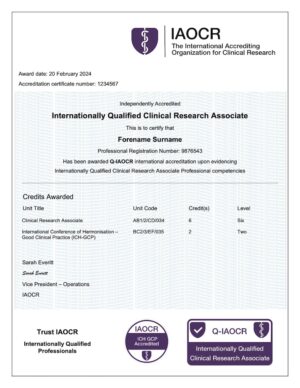World Health Day is an opportunity to reflect and consider the global health environment and this year the WHO’s focus is on building a fairer, healthier world for everyone. The importance of this day is extenuated following the global impact of the COVID-19 pandemic, which has united scientists and the global community in the fight against this deadly virus, but has also served to highlight the extreme disparities that exist in basic global healthcare worldwide.

Vaccine equity (the equal distribution of vaccines worldwide) has rightly been discussed a lot in recent months. But we should also be considering equity in clinical trial, because all healthcare solutions stem from clinical research. Below we share three industry perspectives on areas that the clinical research industry can address to aid the true balance of research and positively contribute to improvements in global health and healthcare.
Clinical Research Staff and Competence Development Equity: TASK
Performing clinical trials in underused geographies is important because these areas usually carry a higher burden of both infectious and non-infectious diseases per capita. This is mainly due to socio-economic factors such as lack of healthcare access and health education. Thus, this is where new treatments are often most needed. Clinical trials should engage with and be performed within these under-served communities, primarily to access the part of the global population where new and more effective treatments are most required, but also to test therapeutics in the real-world setting where the drug / therapeutic intervention will ultimately be deployed. From a patient perspective, it is essential that they feel confident that should they choose to participate on a trial in even the most challenging of environments, they know they are receiving an internationally monitored standard of care and are being treated by well-trained healthcare professionals adhering to the lasted and best practices.
History has taught us the importance of international good clinical practice (GCP) – we need these standardized rules and regulations when working in the industry to ensure equity when conducting trials globally. Clinical research is not taught in colleges and universities, and GCP is an important international standard that needs to be realized. There is a remaining constraint in high quality, qualified and competent staff especially in underused geographies – aspirant nurses and doctors who want to join clinical research to help develop new medicines in these countries with massive disease burdens. Drug development is continuously changing in focus and complexity. It is a diverse, dynamic, and constantly changing discipline. We need to support global clinical trial equity, not only in how we conduct clinical research, but also in how we teach clinical research – by supporting companies in their development of internationally standardized clinical research to increase capabilities and skills to enable and empower the research industry with knowledge, beyond GCP.
Karen Cloete Head – Quality Assurance & Regulatory | Academy
Duncan McDonald Head – Business Development & Marketing | Donor Relations
Tshepo Kabutu – Community Engagement Officer
Naadira Vanker – Chief Operations Officer
Clinical Research Gender Equity: Medicines for Malaria Venture
Gender equity is a ‘hot topic’ across the globe, from everything from the ‘pay gap’ to healthcare equality; but what about clinical research, does it really matter? We believe it does.
“MiMBa” means pregnancy in Swahili. It also stands for Malaria in Mothers and Babies, a Medicines for Malaria Venture (MMV) initiative designed to accelerate discovery, development and delivery of appropriate antimalarial options for women who are of reproductive potential, pregnant, or breastfeeding. Malaria in pregnancy is a significant public health issue, with 23 million women and girls becoming pregnant in developing regions every year. We recognized that malaria elimination will not fully succeed without the intentional inclusion of women who are, or might become, pregnant.
Currently, too few medicines can be safely used by pregnant women, particularly in the first trimester, and by women who might become pregnant. In the near-term, through MiMBa, we aim to fill data gaps on the use of current antimalarial medicines, which relate mostly to safety, but also to efficacy. Longer-term, as new antimalarial medicines are developed for the general population, the R&D team has the challenge of collecting data to help policymakers evaluate the risk–benefit profile of medicines for use in pregnant or lactating women.
Sandra Johnson
Clinical Research Consistency and Equity: IAOCR
It is well documented that access to clinical trials has a direct correlation with better health outcomes. It is therefore vital that patients can feel confident participating in clinical trials so that they can benefit from enhanced treatment understanding and access to innovative new treatments. Globally recognized best practice standards play an important role in building patient trust and confidence and therefore are essential to a truly global undertaking of clinical trials that contributes to health equity. Wherever a patient is in the world they should have the assurance that they are participating in a safe and ethical clinical trial, managed by clinical trials professionals that are qualified to international standards, working with clinical trial organizations that are part of a recognized ongoing quality assurance system.
Implementing measures to safeguard the standards of clinical research across the globe will allow for clinical trials to be effectively run in all geographies with consistency in trial delivery. By ensuring standards are upheld – through the provision of checks and balances – confidence can be built in the truly global roll-out of trials but also in local geographies where not many trials have been undertaken; enabling for greater access to and insights from clinical trials.
Jacqueline Johnson North, CEO










